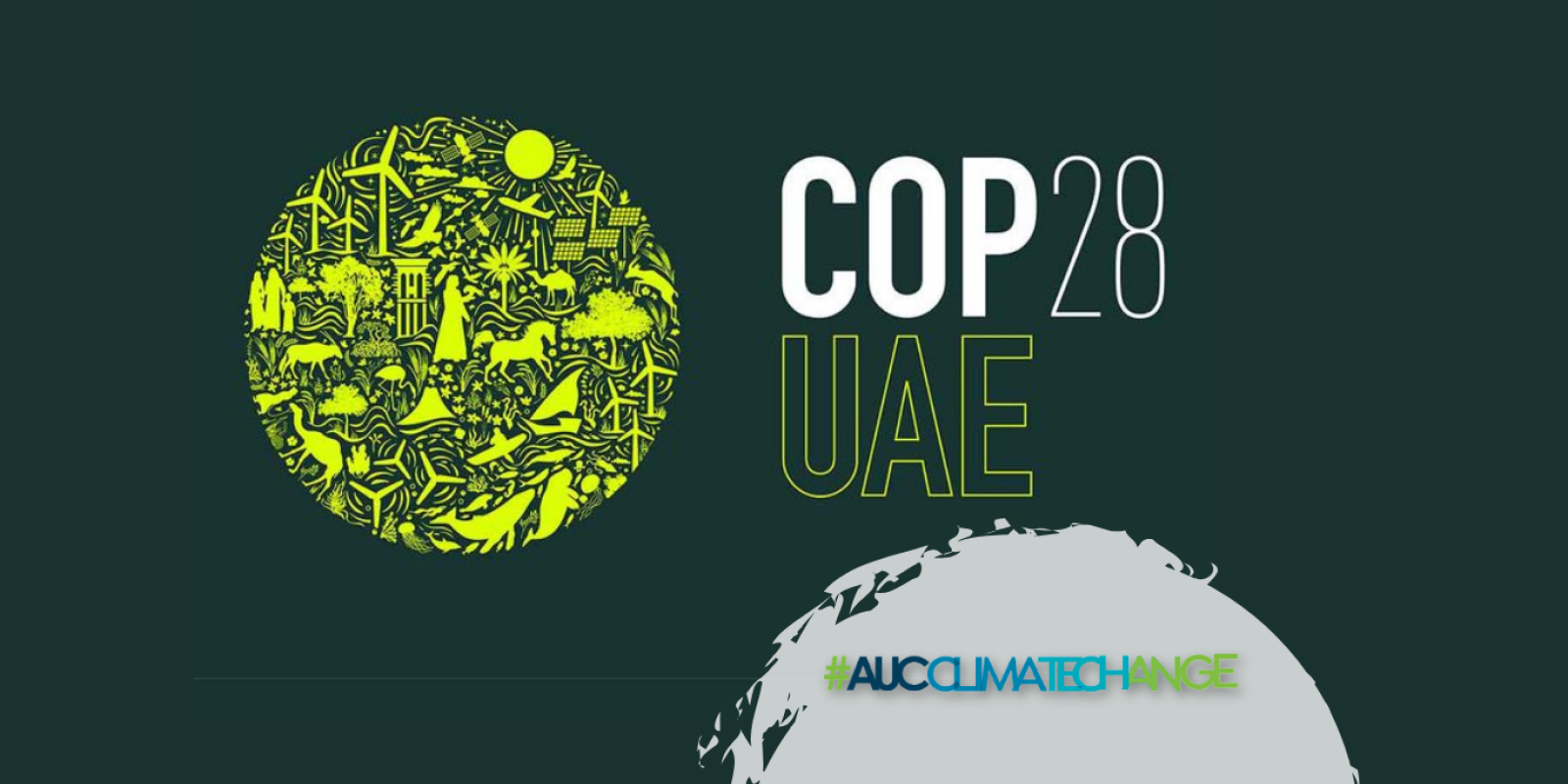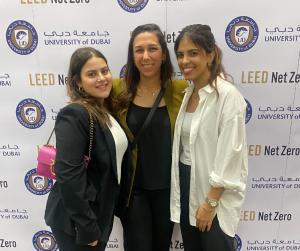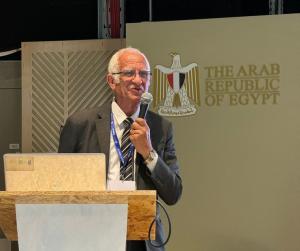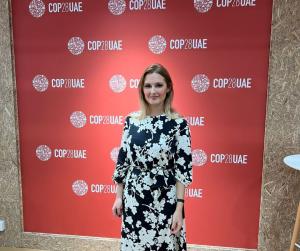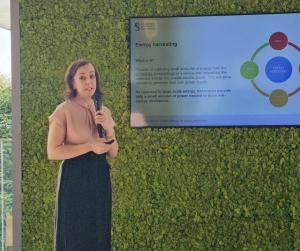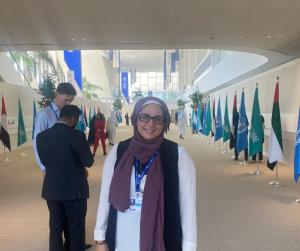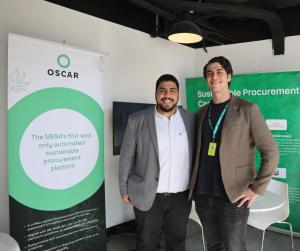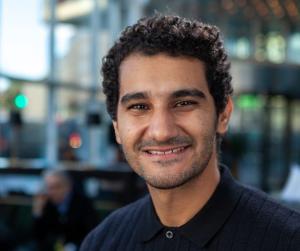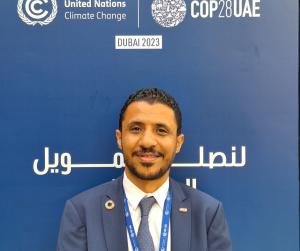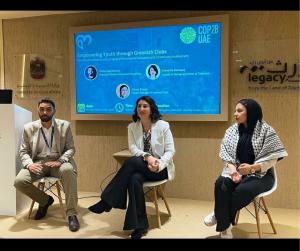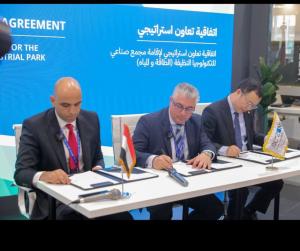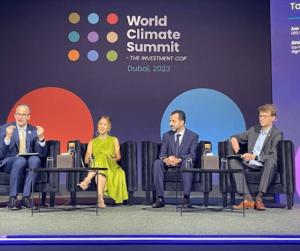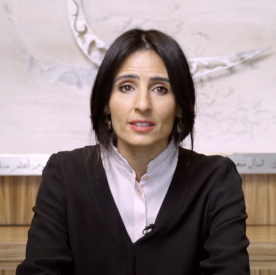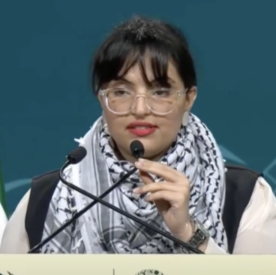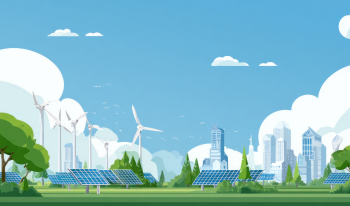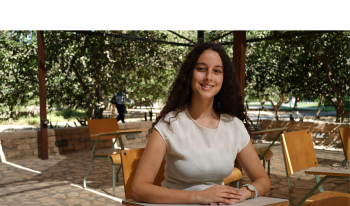July 21, 2018
Building Sustainable Dreams
By Katherine Pollock | This story appeared in the July 2017 edition of AUC Today.This is the cover story for the July 2017 edition of AUC Today."It was a huge responsibility. In school projects, if something goes wrong, the worst-case scenario is that you'll get a bad grade. But as real-life architects, there is no such thing as a bad grade. Money, time and people's lives are at risk."This is how Shaymaa Hesham, a graduating senior majoring in architecture, described her experience in the Sustainability in Architectural Design Studio class, taught by Khaled Tarabieh, assistant professor of sustainable design. In the class, students were empowered to create their own architectural designs based on real-life community needs. They were challenged to not only create the architectural designs, but also develop a holistic plan that includes financials, feasibility studies and other practical concerns."It helped a lot to focus on the financial aspect of my design, not only the aesthetic part of it," said Farah Wahdan, a graduating senior majoring in architecture.Students completed two major projects in this class: one drawing heavily on Cairo as an extension of the classroom to address community needs, and the other using the New Cairo campus as a field site for practical learning. "Both projects engaged students in experiential, hands-on education that enhances their creativity, adaptability and professional skills," said Tarabieh. "This learning-by-doing approach makes all the difference." El-Teseen StreetThe first project was a community design initiative for New Cairo, whereby students surveyed community needs and site conditions at various locations across El-Teseen Street. Based on their community needs assessments, the students proposed projects ranging from an outpatient medical clinic and community center to a government services building.Emphasizing the real-world application of such proposals, the student projects were submitted to the LafargeHolcim Awards for Sustainable Construction, the world's premier sustainable design competition. Each student in Tarabieh's class submitted an entry to the competition, with AUC representing 33 submissions out of 120 entries from Egypt and 620 from the Middle East and Africa. This year, AUC was also chosen to host the regional jury cycle of the awards, becoming the first University in the region ever to do so."Because we were taking part in the LafargeHolcim Awards competition, we made extra sure our projects were practical, buildable, culturally compatible and, of course, sustainable," said Sara Seyam, who is majoring in architecture. "The idea of ensuring practicality and cultural compatibility in one's design is vital, as it produces projects that are realistic and capable of responding to human needs with the addition of experiential spaces. We developed an eye for detail that drove us to produce thorough, well-thought-out designs.""Researching new technologies, materials and means of sustainability while customizing them to suit our environment and target group was both challenging and rewarding." - Hadeel Koura To read more about what architecture students had to say, scroll down.As many students noted, the El-Teseen Street project was not without its challenges. "It was my first sustainable design project," said Wahdan. "It was really challenging to research and come up with an innovative and sustainable technology that would simultaneously fit with the context and environmental conditions here in Egypt.""The best part of this project is that students were left on their own to interact with theclient as professional architects. They were given a request for proposal, and they presented it in a typical manner conducted by real-life professionals."Hadeel Koura, another architecture student, added, "Researching new technologies, materials and means of sustainability while customizing them to suit our environment and target group was both challenging and rewarding."Architecture student Rawan Sohdy noted that the project taught her to "include sustainability in every aspect of the design process: economic sustainability through entrepreneurship, social sustainability through multi-use, and environmental sustainability by including environmental techniques in the making of kinetic walls and roofs, instead of the typical solar panel add-ons."For Sohdy, taking part in the LafargeHolcim Awards competition was a dream come true. "Last January, I found myself scrolling through Google for student architecture competitions," she recalled. "Despite my enthusiasm, I gave up on the idea since I had no guidance and didn't know where to start. A couple of weeks later, I found myself in class, with Dr. Tarabieh saying, 'Guess what? You're the lucky batch who will participate in an international competition for this semester's studio project!' No words can describe how rewarding it was to break out of my comfort zone and find myself, almost four months later, clicking the submit button when my project was done and compiled.""From participating in an international competition and presenting publicly to a client to designing in groups and taking costs into consideration, the class brought me closer to what real-life architecture is like." Rawan Sohdy"What was rewarding about this project is that I saw an end goal to it; the design could actually be executed in real life. ... It was a huge responsibility." Shaymaa Hesham"It was a truly fulfilling experience to interview 'real clients' and create a design based on their needs and preferences, while also adding our opinions and design ideas." Farah Wahdan"The idea of ensuring practicality and cultural compatibility in one's design is vital, as it produces projects that are realistic and capable of responding to human needs with the addition of experiential spaces." Sara SeyamCampus Craft HouseThe second class project was a simulation of a client-architect project, where the students were asked by AUC's Office of Residential Life and Office of Facilities and Operations to design a craft house in the entry courtyard of the University Residences. The craft house had to be sustainable, accessible and creative, allowing dorm residents to learn and enjoy various crafts as a break from academic pressures. The designs had to focus on sustainability, both in the types of crafts available for dorm residents and in the design, construction and ongoing operations and maintenance of the craft house itself. Some of the sustainability ideas proposed by students in Tarabieh's architecture class include installing green walls and solar panels in the craft house as well as recycling material for different purposes, such as: using clay, wood, rice-straw and paper tubes as building materials; soda cans as tin bricks; car tires and cardboard to make furniture; and aluminum cans to make screen walls."The trickiest part was being both sustainable and economic," recalled Sohdy. "Hence, my group and I relied on touching down on Egyptian heritage by using clay. Through research and by following up with Dr. Tarabieh, we learned to design a small-scale building that can operate completely without mechanical systems such as air conditioners and heaters."At the end of the Spring 2017 semester, students presented their proposals to a jury of University experts in design and sustainability as well as AUC President Francis J. Ricciardone. Proposals ranged from designing a craft house entirely constructed of cardboard to an architectural plan that included dynamic walls that can move to create different spaces for dorm residents."The best part of this project is that students were left on their own to interact with the client as professional architects," said Tarabieh. "They were given a request for proposal, and they presented it in a typical manner conducted by real-life professionals."And the students felt the same way. "The highlight of the class was definitely the client meeting for the craft house project," said Wahdan. "It was a truly fulfilling experience to interview 'real clients' and create a design based on their needs and preferences, while also adding our opinions and design ideas."As Sohdy noted, "With a client, it stops being just about how accurate our drawings are, but how we manage to sell our ideas and their potential to the client, despite being limited by client requirements."In designing a craft house for the University Residences, students proposed innovative sustainability ideas, including using paper tubes to design a system of mobile wall panels that can be moved around to create multiple rooms or room settings.In one project proposal, Warshetna (Our Workshop), the students were able to rethink and redesign the cardboard material into a sustainable and innovative means for construction. Their detailed proposal had a conceptual approach that used cardboard to "reflect the freedom of expression of the activities performed inside of it.""The biggest challenge was our chosen building material of cardboard tubes,'" said Wahdan. "We had to read many journal articles and talk to professionals in order to identify the structural capabilities of this unconventional material to convince our clients of our choice."Another student proposal for the craft house, titled Studio Circle X, utilized recyclable materials to create a flexible space with convertible and adjustable walls to adapt to student needs and maximize the natural environment. In their presentation, the students emphasized that "every space hosts an activity" and that no room should be under-utilized."What was rewarding about this project is that I saw an end goal to it; the design could actually be executed in real life," explained Hesham.In designing a craft house for the University Residences, students proposed innovative sustainability ideas, including using upcycled painted car tires to be used as flower pots.AUC as a Living and Learning LabReflecting on the larger concept and purpose inspiring his class, Tarabieh noted, "We are using our campus as a living and learning lab, a concept promoted by AUC's Research Institute for a Sustainable Environment. Using student expertise to provide solutions to the University, especially in creating a sustainable, energy-efficient environment that minimizes waste, is an overall effective strategy that can further position AUC as a sustainability leader in Egypt and the region."In addition to advancing AUC's reputation as a regional leader in sustainability, Tarabieh emphasized the importance of helping students gain real-world experience. "It is critical for students to be trained as professionals and to interact with clients before they graduate," he said. "This gives them an edge in the market and allows them to understand market needs and the professional language of practice."
Student Experience
